After the afternoon talks ended at the aquarium and before drinks and dinner began, the Tennessee River Basin Network (TRBN) and UMCES held a short session on the Tennessee River report card. We were happy with the high attendance at our session and the progress we made during it. I started the session off with a spoken version of a song, adapted from the Chattanooga Choo Choo swing band song from 1941. The lyrics are as follows:
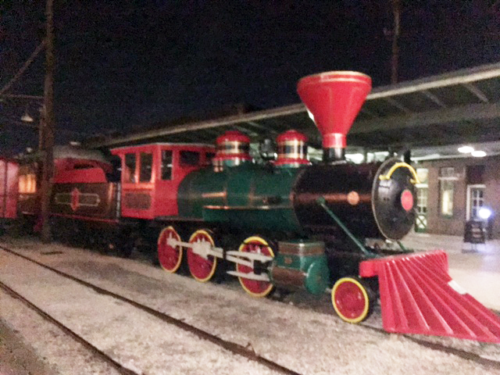
Tennessee River Choo Choo
15 Aug 2017
William C. Dennison
Pardon me, boy
Is that the Tennessee River report card?
Stressors and condition
Boy, you need these to achieve your mission
We can afford
To add in socio-economic indicators
We hope that you really do care
And have time to spare.
We started this effort with the Appalachian LCC
Collecting data and coming here to Tennessee
Sharing our progress today
Looking to create a better way
And getting your input is really key.
When you hear the whistle blowin’ at five o’clock
We roll up our sleeves and do more than just talk
Shovel all the data in
And put the data into each bin
Woo, woo, Chattanooga folks you really rock.
There’s gonna be
A party afterward here in the aquarium
Drinks and dinner
And awards for more than one winner
And a wander through the aquarium
Until we run out of steam.
So Tennessee River report card
Won’t you join us now
Tennessee River report card.
Won’t you join us now.
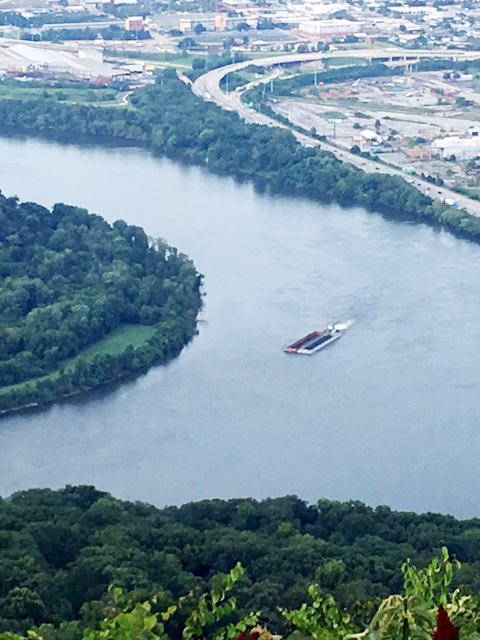
For the first exercise that we conducted in the report card workshop, we created a word cloud using the first three words that each person thought best described the Tennessee River basin. The second drill involved quick conceptual mapping; we projected maps of the Tennessee River basin and then wrote on them.
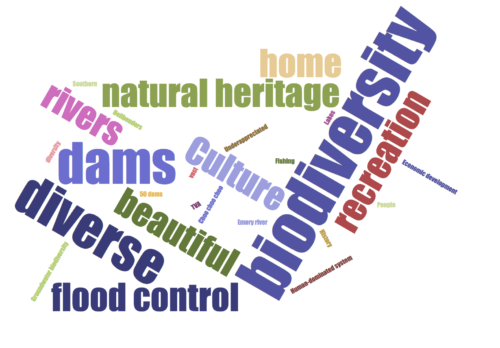
We then played two rounds of ‘SNAP’ to generate and prioritize the values and threats to the Tennessee River basin. The top values we generated from SNAP were biodiversity, recreation, and sense of place. The top threats we decided on were urbanization/population growth, habitat fragmentation, and sedimentation. We also stimulated discussion about available data sources and expanded our network of collaborators for the report card effort
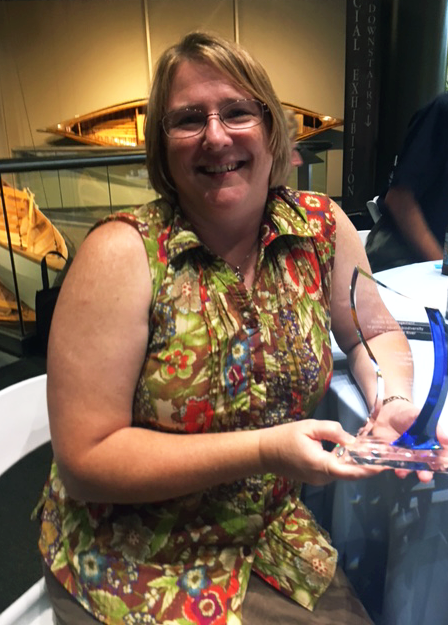
After the workshop, we had drinks and dinner in the aquarium lobby. Then, Evan Crews from the Tennessee Valley Authority presented two awards on the behalf of the Tennessee River Basin Network. He gave the Communication/Outreach Award, accepted by Robyn Goad, to the Clinch River Valley Initiative. The Science and Management Award Award he handed to the Hiwassee River Watershed Coalition, and Callie Moore accepted it. We then wandered through the exhibits after its normal open hours. This is by far my favorite way to see museums and aquaria: without the crowds and with a drink in hand.
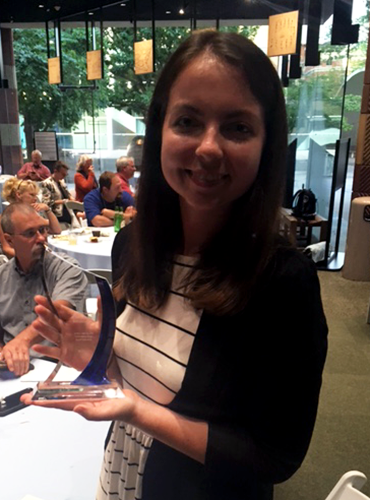
On Day 2 of the workshop, we split into two breakout groups: Science and Management and Communication and Outreach. This session not only helped us to get to know individuals, but also to brainstorm some ideas for moving forward. I felt pleased by the fact that the participants desired to increase the number of events per year. This desire for more interaction bodes well, and this third annual gathering was already vibrant. Here are the major recommendations from each group:
Science and management
Governance and planning
Diversity
Transparency
Funding
Communication and outreach
More communication throughout the year
Events between annual meetings
Mapping of available resources
The convergence of ideas from the two breakout groups demonstrated a strong sense of group identity.
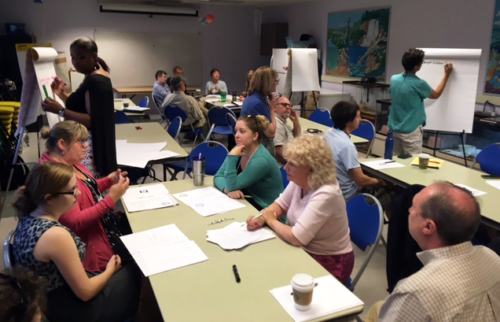
We also had a discussion about linking conservation efforts to values that that people in the Tennessee River Valley could identify with and understand. Since we had discussed the proliferation of nanobreweries and microbreweries in the region – one of the participants from the Tennessee Valley Authority is a partial owner of a Knoxville microbrewery – I chose a beer theme. I came up with Learning, Accountability, Governance, Expertise, Relevant (LAGER) and Branding, Expanding, Engaging, Report card (BEER).
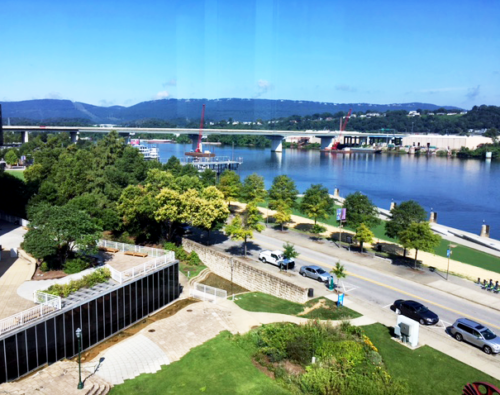
The thing I enjoyed the most about this workshop was the people I met. For example, I enjoyed meeting Bernie Kuhajda from the Tennessee Aquarium Conservation Institute. Bernie had worked as a faculty member for University of Alabama, but his desire to participate more in conservation efforts prompted his transition to the Tennessee Aquarium. The people that I met from the various river groups were very interesting and passionate about their rivers.
About the author
Dr Bill Dennison is a Professor of Marine Science and Vice President for Science Applications at the University of Maryland Center for Environmental Science (UMCES). Dr Dennison’s primary mission within UMCES is to coordinate the Integration and Application Network.
Website: http://ian.umces.edu/people/Bill_Dennison/
Email the author | See all posts by Bill Dennison